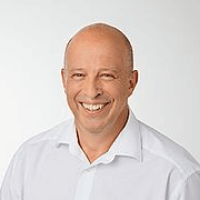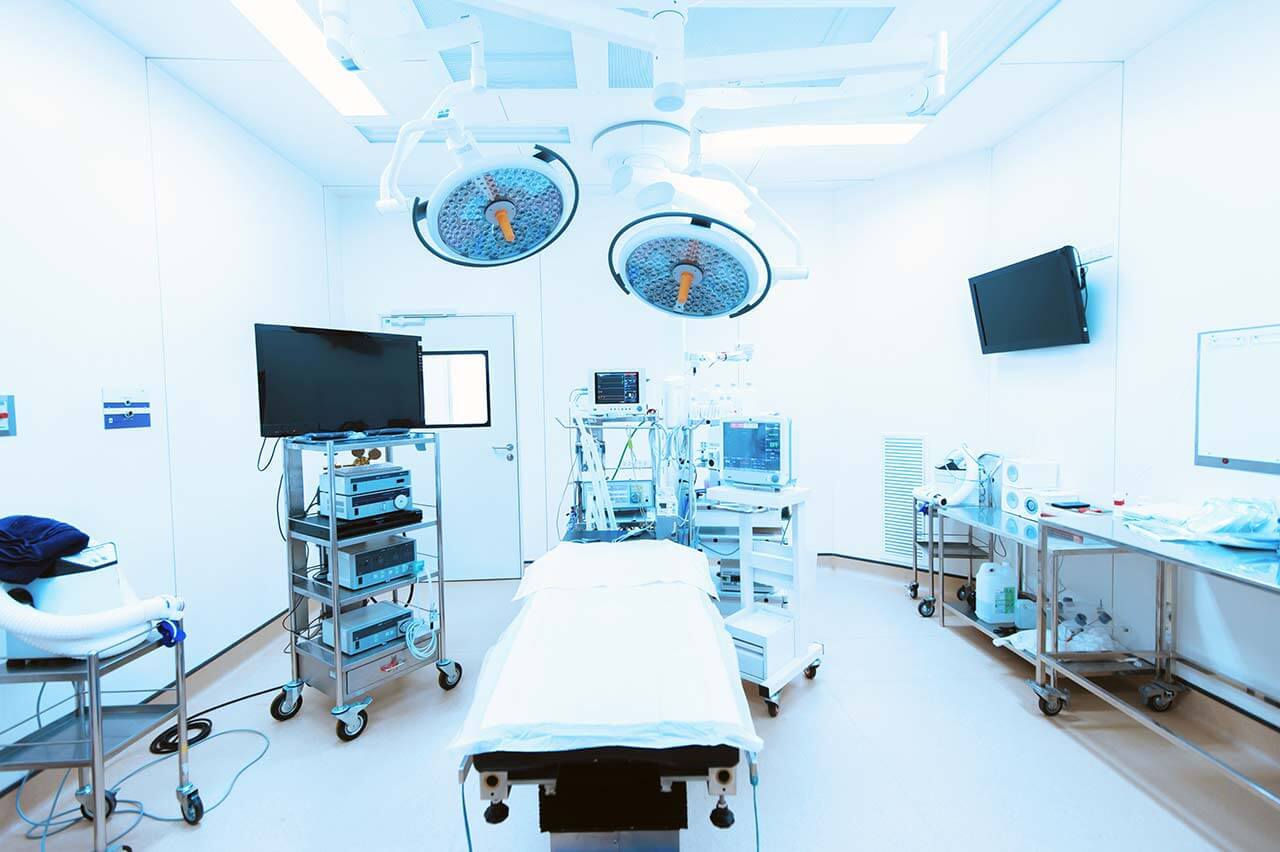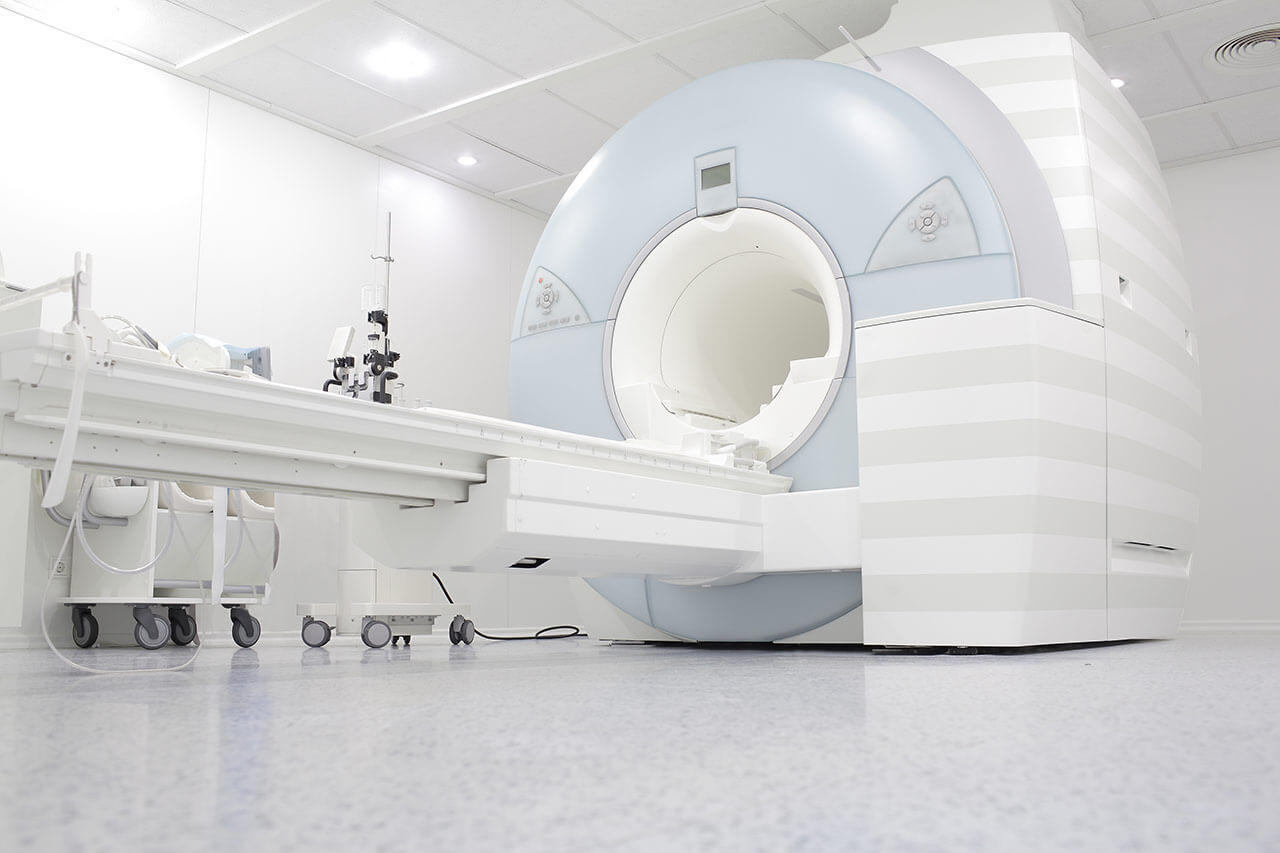
The program includes:
- Initial presentation in the clinic
- case history collection
- general clinical examination
- laboratory tests:
- complete blood count
- general urine analysis
- biochemical analysis of blood
- TSH-basal, fT3, fT4
- tumor markers (thyroglobulin (TG),
TG antibodies (TgAb)) - indicators of inflammation
- indicators of blood coagulation
- ultrasound scan of the thyroid gland
- thyroid scintigraphy
- radioiodine therapy
- symptomatic treatment
- cost of essential medicines
- nursing services
- stay in the hospital with full board in 2-bed room
- elaboration of further recommendations
How program is carried out
During the first visit, the doctor will conduct a clinical examination and go through the results of the available diagnostic tests. After that, you will undergo the necessary additional examination, such as the assessment of liver and kidney function, ultrasound scan of the thyroid gland and lymph nodes of the neck, thyroid scintigraphy. This will allow your doctor to assess how effective radioiodine therapy will be and how well you will tolerate it. In addition, the doctor will calculate the dosage of the drug you need.
Radioiodine therapy with I-131 includes oral administration of the drug. You will take 1 to 4 radioactive iodine capsules or drink about a teaspoon of liquid with radioactive iodine. You will take the drug in your ward, without visiting the manipulation room or operating room.
After taking radioactive iodine, you will stay in your ward for 24 to 48 hours. The next morning after the procedure, the dosimetrist will determine the amount of radiation in your body. If the amount is low, you will be allowed to leave your ward and will be discharged from the hospital. If the amount is high, then the dosimetric control will continue for another day, until a low amount of radiation in your body is detected.
The isotope I-131 can accumulate not only in the thyroid gland, but also partially in the salivary glands. This can cause dry mouth. To get rid of this side effect, you will dissolve sour candies, as this stimulates the work of salivary glands.
The drug is quickly excreted by the kidneys, and after 48 hours you will no longer pose a danger to others. After the procedure, you should drink at least 1 glass of water per hour and visit the toilet regularly. This will allow you to quickly remove radioactive iodine from the body. Food can be usual, without excess iodine in the diet.
During these 48 hours, you can read, use a mobile phone, tablet or computer. All these devices will not be a source of radiation in the future.
Control examination includes scintigraphy, which is performed 7-10 days after radioiodine therapy. Based on the results of the examination, the doctor will determine how well the cells of the thyroid gland (or cancer metastases) have accumulated radioactive iodine. In a few weeks after the procedure, you will have a control blood test for thyroid hormones. In the future, you will visit an endocrinologist regularly.
Required documents
- Medical records
- MRI/CT scan (not older than 3 months)
- Biopsy results (if available)
Service
You may also book:
 BookingHealth Price from:
BookingHealth Price from:
About the department
The Department of Nuclear Medicine at the ATOS Clinic Heidelberg provides the full range of medical services in its area of competence in accordance with the high standards of European medicine. The main focus of the daily work of the department's doctors is radioisotope diagnostics: classical scintigraphy, DATSCAN scintigraphy, single-photon emission computed tomography (SPECT), and SPECT/CT. To perform radioisotope examinations, the department uses the latest generation of the world-renowned Philips gamma camera, a BrightView gamma camera with excellent performance, and other equipment. The department also offers therapeutic procedures, the most popular of which is radiosynoviorthesis. This is an effective method in the fight against joint pathologies, especially rheumatoid arthritis and arthrosis. Diagnostic and therapeutic procedures are mostly performed on an outpatient basis without hospitalization. The health of patients is in the safe hands of a highly competent medical team with impressive clinical experience in their specialty. The department is headed by Dr. med. Dirk Aufderstrasse.
The department performs skeletal scintigraphy (osteoscintigraphy) almost every day. This examination is indicated for patients with suspected arthrosis, bone inflammation, osteonecrosis (necrosis of a bone area caused by impaired blood supply), and impaired wound healing after fractures, endoprosthesis implantation, or other skeletal surgical procedures. Osteoscintigraphy is performed as follows: the patient is injected with a radiopharmaceutical, which accumulates in the bones in the amount necessary for scanning with a gamma camera within 2 hours. During the examination, the patient receives a minimal dose of radiation that is safe for health, while scintigraphy provides important diagnostic data in cases of bone pain of unclear genesis, suspected bone tumors, or pain syndrome after injuries without signs of a fracture. Osteoscintigraphy is also used in the follow-up of oncopathologies that may metastasize to bone. The department also offers three-phase bone scintigraphy, which is used in most cases to diagnose benign tumors. Bone scintigraphy takes 4-5 hours.
The department's doctors are also competent to perform renal scintigraphy. This examination may be necessary in the case of suspected renovascular hypertension, nephrosclerosis (reduction in the size of the kidneys and their gradual replacement with connective tissue), renal dysfunction with or without urinary tract obstruction, etc. The first stage of renal scintigraphy is the intravenous administration of a radiopharmaceutical (mercaptoacetyltriglycine, MAG 3), after which scanning is performed with a gamma camera. The examination lasts 1-2 hours. Before renal scintigraphy is performed, the department's doctors give the patient recommendations, the most important of which are to drink plenty of fluids and not to take antihypertensive drugs on the day of the examination.
Thyroid scintigraphy complements the department's diagnostic capabilities. During the examination, the patient is administered intravenously with the radiopharmaceutical Technetium-99m, after which two-dimensional scans of functionally active thyroid tissues are generated using a gamma camera. Prior to the examination, the patient is given instructions on preparation: it is forbidden to take iodine-containing medicines for at least 4 weeks before the examination. Scintigraphy is indicated for patients with suspected "cold" and "hot" thyroid nodules, thyroid adenoma, thyroid cancer, and other pathological changes. The procedure takes no more than an hour.
The department also offers treatment with radiopharmaceuticals. One of the medical team's specialties is radiosynoviorthesis (RSO). This is a treatment procedure with proven effectiveness for the local treatment of chronic inflammatory joint lesions. The doctors at the medical facility most often perform RSO on patients with arthrosis and rheumatic joint lesions, such as rheumatoid arthritis. It should be noted that radiosynoviorthesis is not a first-line treatment. It is used when conservative treatment with anti-inflammatory drugs is not effective. The essence of the therapeutic manipulation is the injection of a radiopharmaceutical into the affected joint under imaging guidance. The procedure is performed on an outpatient basis under local anesthesia. The radiopharmaceuticals used in radiosynoviorthesis contain beta-emitting radionuclides with a radius of action of only a few millimeters, so the procedure has virtually no effect on healthy tissues. This method of treatment is a sparing and highly effective alternative to surgery. In most cases, pain relief occurs within a few days after RSO. Another advantage of the procedure is that it can be repeated after a short break.
The department's range of medical services includes the following:
- Diagnostic procedures
- Classical bone, renal, and thyroid scintigraphy
- DATSCAN scintigraphy
- Single-photon emission computed tomography (SPECT)
- SPECT/CT
- Therapeutic procedures
- Radiosynoviorthesis
- Other diagnostic and treatment methods
Curriculum vitae
Higher Education and professional Career
- 1981 - 1987 Medical studies and thesis defense, Ruprecht Karl University of Heidelberg.
- 1988 - 1993 Residency, Municipal Hospital Wuppertal-Barmen (Academic Hospital of the Heinrich Heine University Duesseldorf).
- 1992 Board certification in Nuclear Medicine, Medical Association of North Rhine.
- 1993 - 1998 Private Nuclear Medicine Clinic, Hagen, Westphalia.
- Since 1999 Head Physician, Department of Nuclear Medicine, ATOS Clinic Heidelberg.
Memberships in Professional Societies
- German Society for Nuclear Medicine (DGN).
- Southwest German Society for Nuclear Medicine (SWDGN).
- Professional Association of Nuclear Medicine Specialists (BDN).
Photo of the doctor: (c) ATOS Klinik Heidelberg
About hospital
The ATOS Clinic Heidelberg is a reputable medical complex with high standards of patient care. The clinic was founded in 1991. Since then, it has taken a leading position in the European medical arena in the treatment of diseases of the musculoskeletal system and many other pathologies. The clinic has a highly professional team of doctors, many of whom are world-renowned professors. Specialists work with state-of-the-art equipment. They use classical and innovative treatment methods with high efficiency. Personalized medical care is a priority in the clinic: doctors carefully study each clinical case and develop individual diagnosis and treatment regimens, taking into account each patient's needs and wishes. Patients not only from Germany but also from other countries of the world regularly seek medical help from the clinic, which indicates the outstanding quality of medical services and the high level of trust patients have in the specialists of the ATOS Clinic Heidelberg.
In addition to providing top-notch medical care, the clinic is distinguished by its modern design. When a patient crosses the threshold of the clinic, he or she has the impression that he or she is not in a medical facility but in a luxury hotel. This idea is part of the clinic's working concept because the patient's comfort and psychological state play an important role in achieving successful treatment outcomes. The clinic offers cozy rest areas where patients can distract themselves from the therapeutic process and socialize. It goes without saying that the equipment in the diagnostic, treatment, and operating rooms is of a very high standard, which enables effective and safe treatment.
Patient care is important throughout the therapeutic process. The nursing staff treats each patient's life situation with respect and compassion and surrounds him or her with care. The doctors are focused on the best results, are always open to communication with the patient, and are happy to answer any questions.
More than 96% of patients rate their treatment experience and the quality of medical care at the ATOS Clinic Heidelberg positively.
It should be noted that the clinic is recognized as one of the best in the country in the field of foot surgery, hand surgery, hip, knee, and shoulder surgery, as well as in the field of spine surgery and aesthetic plastic surgery, according to the rating of Focus magazine.
Photo: (с) depositphotos
Accommodation in hospital
Patients rooms
The patients of the ATOS Clinic Heidelberg stay in single and double rooms. The clinic also offers accommodation in enhanced-comfort patient rooms. The patient rooms are made in light colors and modern design to create a comfortable and cozy atmosphere during the patient's stay in the hospital. The standard rooms are equipped with an automatically adjustable bed, a bedside table, a TV, a telephone, and air conditioning. The rooms have Wi-Fi access. Enhanced-comfort patient rooms are additionally equipped with upholstered furniture, a safe, and a mini-bar.
Meals and Menus
The clinic offers delicious and varied meals three times a day: breakfast is served as a buffet, lunch offers a choice of three set menus, and dinner also offers a choice of several set menus. The menu is mainly European cuisine. If, for some reason, you cannot eat all the foods on the menu, you will be offered an individual menu. Please inform the medical staff about your dietary preferences prior to the treatment.
The clinic also has a cozy cafe with a wide range of hot and cold drinks, cakes, snacks, sandwiches, salads, and hot dishes.
Further details
Standard rooms include:
![]() Toilet
Toilet
![]() Shower
Shower
![]() Wi-Fi
Wi-Fi
![]() TV
TV
Accompanying person
Your accompanying person may stay with you in your patient room or at the hotel of your choice during the inpatient program.
Hotel
You may stay at the hotel of your choice during the outpatient program. Our managers will support you for selecting the best option.




